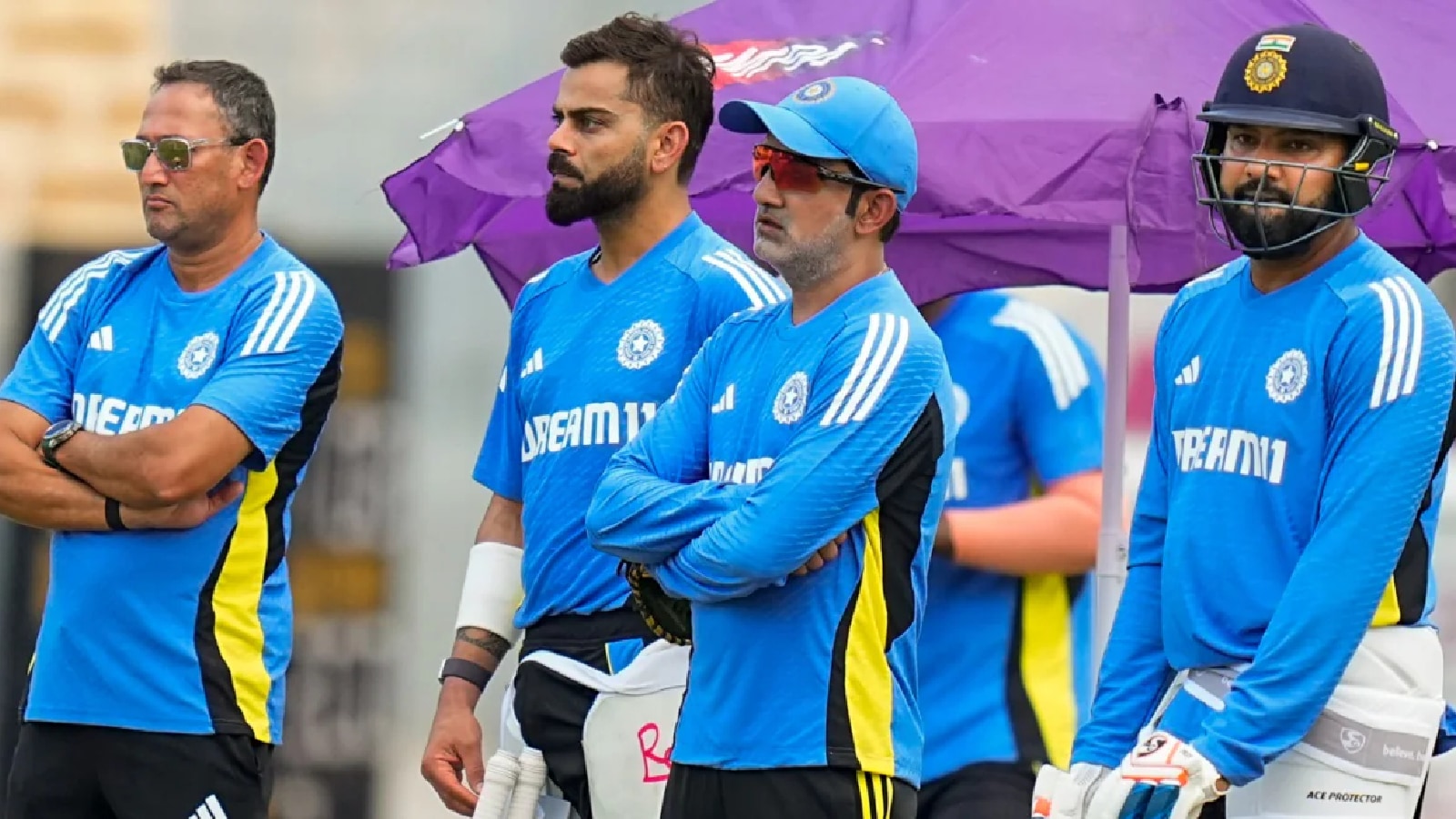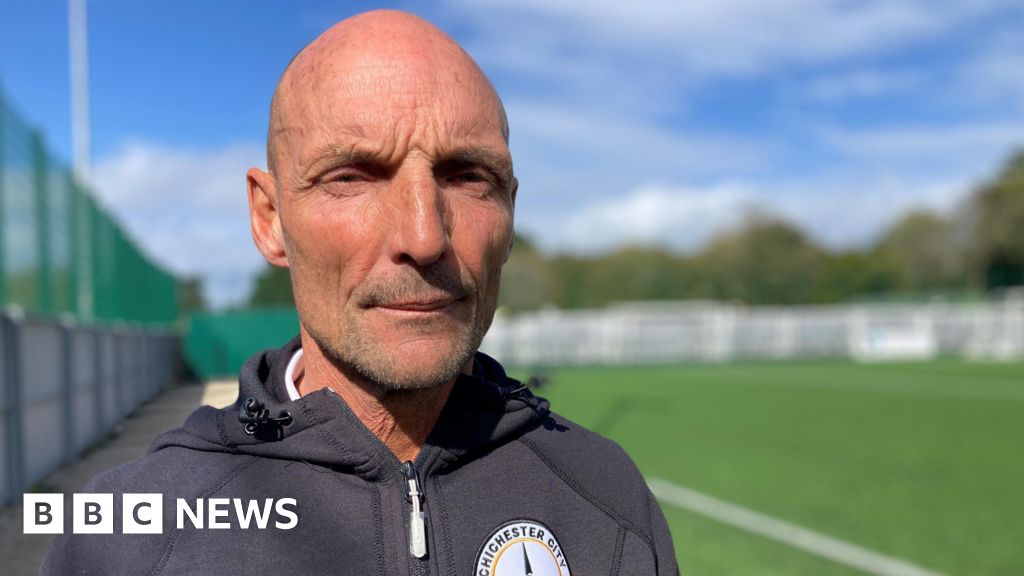Why serial abusers like Michael Slater are likely to strike again

, register or subscribe to save articles for later.Save articles for laterAdd articles to your saved list and come back to them any time.The charm, the adoration, the fun; he’s so much fun – at first. He plays the guitar, tells rollicking stories, sends flowers. “You could shut everyone away, and be the only two people in the world,” remembers Tina*. “He seems so confident; ‘how could anyone not want me? I’m Michael Slater’. I can see how women get wooed.”But the mask slips quickly to reveal cruelty beneath. The cricket “legend’s” charisma hides a recidivist domestic violence perpetrator and a chronic alcoholic who has abused women in three states. He has stalked, harassed, assaulted, interrogated, isolated and choked his partners. He has lied, flung false accusations and secretly filmed intimate moments, then threatened to kill himself if his partners try to leave. And still, he sees himself as the victim.He was once a famous cricketer, but Slater is now a famous domestic abuser. His story highlights the system’s inability to protect women from habitual perpetrators. “It’s not working for men like him,” says Hayley Boxall, a criminologist at the Australian National University. “As long as he can repartner, as long as he has these underlying issues, as long as he has a grievance against his partner, he’s going to be an issue.”The women he has hurt say he has never shown remorse. They’re worried about those he is yet to meet. “It’s still there, whatever it is that drives him to do this,” says a Slater survivor, one of three who spoke to this masthead from Victoria, NSW and Queensland, all on the condition of anonymity because they are still scared. “And it’s very frightening.”Slater was approached for comment and was asked if he had a response for the women he has hurt. His lawyer, Paul McGirr, replied on his behalf, describing this story as bottom-of-the barrel journalism. “Your line of questioning appears to be biased, lacking impartiality and designed to inflict maximum damage on our client and his children,” he wrote.Slater was a batsman – a prodigy from Wagga Wagga in NSW, who got his Australia cap at age 23 during a legendary era in Test cricket. He played more than 70 tests alongside the likes of Mark Taylor, Steve Waugh and Shane Warne. After his playing career finished, he became a commentator, including for Nine, the owner of this masthead.AdvertisementBut he was troubled, too. Volatile. A big drinker. His nickname was Sybil, from a 1976 film about a woman with multiple personalities. Even in a much less enlightened era, there were concerns (kept quiet; fame is powerful) about how he treated women.Apprehended violence orders against him date back to 2002. Since 2016, five NSW women have taken out protection orders against him. In Victoria, there has been at least one interaction with police, and more than one victim.The first tranche of domestic violence charges against Slater were laid in NSW in October 2021, over his bombarding of a partner with “harassing and highly offensive” text messages, phone calls and unwanted visits. They were dismissed under the Mental Health Act.Abusers can be long-time perpetrators, but if nothing is on record, the courts treat it as a first offence. “Suddenly, it’s offence No.1 [from the public viewpoint], when really there’s a big history,” says Associate Professor Jane Wangmann from the faculty of law at the University of Technology.Slater was first punished in November 2022, when a NSW magistrate put him on a two-year good behaviour bond for domestic violence offences relating to an incident in which he’d begun drinking vodka at 8am, and within hours had thrown his girlfriend’s phone, broken a chair, banged his head against a mirror, grabbed at her jumper – causing her to lose balance and fall – all while accusing her of being unfaithful.He’d behaved that way with other women before – they just hadn’t reported it. “I’ve experienced it,” says one woman, recalling Slater’s paranoia, tracking of devices, constant interrogations about her fidelity, and the way he went through her phone, bins and inbox to find reasons to accuse her of cheating and information he’d weaponise to stop her leaving.AdvertisementHe’d send messages to her contacts to isolate her, fly into a rage when people called her, and interrogate her after every conversation. Slater had put his hand around her throat, too, and had laughed when she couldn’t breathe. When she tried to leave, he’d threatened to kill himself. She did not press charges because “I feared I would be the reason for him losing his job [as a cricket commentator]; if I was the reason, what would he do to me?”The ink had barely dried on Slater’s good behaviour bond in NSW when he moved to Queensland, pledging to reinvent himself as a mental health counsellor in Noosa.But he took his troubles – alcoholism, addiction, bipolar and borderline personality disorder, ADHD and complex abandonment issues, a court has heard – with him. Five months later, he was in trouble again over an altercation with police who had gone to his home for a welfare check after he had threatened suicide to a former partner (an assault charge was downgraded to obstruction; he told the court he’d “dropped the ball”).After 12 months, he was before a Queensland court again, this time on more than a dozen domestic violence charges. He allegedly broke into a woman’s house, grabbed her as she begged him to stop, and sent her 300 texts, calling her a c---, an escort, a liar and a slut. Amid threats to kill himself, he hit her, choked her, and raised a bottle of vodka while saying, “I’ll f---ing kill you”.One victim said this behaviour was standard for Slater. “The strangulations and physical assaults. Pulling me around the house by my hair, pulling me off the bed,” she said. “I didn’t report him because it would have involved a court case. Reading [the Queensland] story was like reading exactly the same story. What you learn is that when you escape is when you put yourself in serious, immediate trouble. That’s when the assaults happen.”Slater pleaded guilty to seven charges, including two of choking. His doctor wrote a letter to the court saying he had behaved in an “uncharacteristic” manner. He was sentenced to four years in jail, but a Queensland court declared the year he’d spent in prison on remand was enough and suspended the rest of his sentence for five years.AdvertisementSo Slater was back in the community again, free to woo women. Within weeks of his release, he appeared to have posted a profile on an internet dating site. The profile listed his “love style” as touch, and it said he was looking for a short-term relationship but was open to a long-term one. “Imagine if it just works. Face-to-face I promise, the night is ours!” the profile says.Unlike some repeat offenders, Slater doesn’t have the advantage of anonymity. But he has something else. His cricketing history gives him a kind of halo, especially with men. Male police officers have paused during investigations to listen to his cricketing stories. Even prosecutors have acknowledged his sporting achievements. This made his victims worry even more about speaking out, fearing the sympathy would be on “Slats’” side. “Strangers would want to be his best friends,” one victim said.LoadingThe three women who spoke to this masthead are afraid – for their own safety and for the women he has not met yet. They don’t know where he is. They don’t know if he’ll turn up in their lives again. They fear he will try to punish them. They don’t think he has changed.Perhaps Slater has had an epiphany about his behaviour towards women, and is on the path to change – but it is unlikely. His victims say he has never apologised or shown any insight into the harm he was causing. He expressed no contrition in his statement via his lawyer, just fury and outrage over the fact his behaviour had been questioned. In one of his NSW court matters, the magistrate emphasised his lack of remorse, although the Queensland judge said Slater had made an effort at rehabilitation, co-operated and accepted responsibility.Recidivists often offend against many women throughout their lives, leaving devastation in their wake. “When we talk about partner support with men’s behaviour change [groups], there might be seven, eight, nine women we know he has been abusive towards previously,” says Boxall. “It’s uncommon that you’d hear about a guy who was abusive in one relationship and in every other one was fine.”It’s a familiar story to Sydney woman Kay Schubach, whose ex is also a dangerous recidivist. “He always moves on. He just finds another woman of a certain age with her self-esteem a little shaken,” she says. “He’ll seduce them, and then – he can’t help himself – within a couple of weeks, this really nasty side comes out. Deprivation of liberty, surveillance, stealing their phone – he creates a terrifying situation.”AdvertisementThe challenge for the system is not only to help and seek justice for victims as they put together the pieces of their lives, but to protect other women, too. And that’s where it runs out of answers.Some people say there should be a “name and shame” register for domestic violence offenders, to let women check the history of the man they’re dating; yet Slater’s history was plastered across the internet, and still, he had been romancing multiple women in Queensland before his incarceration, one of them said. Perhaps those women had not seen stories about his offending, or had not believed them.“I guarantee a lot of these women knew he had this prior record, but they started a relationship because he was charming, fun, exciting, but after a while he wasn’t, and it was scary, and they didn’t know how to leave,” says Boxall.Some hope tackling alcohol and drug use will guard against reoffending, but Slater has had several stints in rehab (some paid for by the Australian Cricketers’ Association, under its welfare services; the association refused to comment about Slater), and they have failed (early in September, after another rehab stint, Slater said he was sober again). “Alcoholism doesn’t cause someone to be violent,” says Boxall. “It makes them more violent.”Men’s behaviour change courses can help, but they require insight and a willingness to change. Courts can send perpetrators there and demand evidence of participation, but they don’t know whether participation has been genuine. Also, their efficacy for some types of offenders is uncertain. “We don’t actually know what outcomes look like for people with personality disorders or PTSD or alcohol and drug addiction,” says Boxall.Even jail isn’t a long-term solution. Eventually, they’ll be released. There can be conditions on that release, but they don’t apply forever. NSW has recently introduced a Serious Domestic Abuse Prevention Order, which lets courts force perpetrators to notify them if they begin a new relationship, or if they set up a dating profile. But this can be imposed for only five years; after that, there is no more accountability – unless they reoffend.AdvertisementThe ADVO system often doesn’t work for repeat offenders either. Slater has breached these multiple times. “Michael doesn’t care about protection orders,” says one victim.There are systems that alert victims to their perpetrator’s release from jail, so at least they can be on the lookout but the victims who do not report abuse to the police, or don’t push for charges, or whose incident is dealt with under mental health laws don’t qualify.The justice system often focuses on a single victim too, and it sees an offender’s behaviour in isolation rather than as part of a pattern (advocates hope this is changing with the arrival of coercive control laws). “There’s been a tendency not to see an offender’s prior relationships as relevant to their current relationship,” Wangmann says. “You particularly see that in the Edwards case; [before John Edwards killed his two children], the violence towards the previous partner was not considered relevant.”Australia’s federation system, in which different laws apply in different states, creates loopholes too. The challenges posed by a lack of police history for a perpetrator are intensified when they offend in different jurisdictions. “The lack of communication between jurisdictions has made that problem worse,” says Wangmann. “If the police haven’t looked into a record from other jurisdictions, they’re not going to see it.”LoadingSchubach is concerned about this, too. “Not having a national database, or a consistency in the law, and in jurisdictions, is a real problem,” she says. “They just hop over the borders and do it all again.” There is a national domestic violence order scheme.In Boxall’s view, a new type of intervention might be required. “We need something more intensive to deal with men like [Slater],” she says. Boxall suggests a residential facility, where recidivist perpetrators such as Slater get treatment not only for addiction and mental health issues, but also their destructive behaviour towards women.Schubach also backed that kind of treatment facility, and thinks an ankle bracelet would be effective too; this might alarm potential partners with a force that a registry might lack. But she also argues for longer jail terms and tougher sentencing.“I used to be a civil libertarian until I met Simon,” she says. “I think he needs to be continually incarcerated; he offers nothing to society except for the huge expense to the court system and the damage he does to people’s lives. The women of this world are not some social experiment for [parole authorities] to see if he’s reformed.”In May, Cricket NSW said it was considering removing Slater from its Hall of Fame and revoking his life member status. A decision has not yet been made. “The board is currently working through the matter,” a spokesman says.In his comment, Slater’s lawyer, McGirr, says the questions to his client are a fishing expedition dressed up as investigative journalism, and that they seek to subject Slater to double jeopardy (a legal term for trying someone twice for the same crime). “Our client has served his time in respect of his previous charges,” he wrote, adding the story would have a negative impact on Slater’s young, impressionable and vulnerable children.Get the day’s breaking news, entertainment ideas and a long read to enjoy. Sign up to receive our Evening Edition newsletter.









